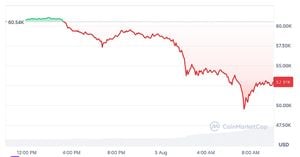Motorists across the UK should brace themselves for significant changes to vehicle tax regulations, set to be implemented on April 1, 2025. These sweeping amendments to Vehicle Excise Duty (VED) will affect electric, diesel, and petrol vehicle owners alike, leading to increased expenses for many. This major policy shift aims to encourage the rising adoption of electric vehicles (EVs) as the government works through its environmental commitments amid increasing numbers of EV registrations.
For years, electric vehicle drivers have enjoyed tax-free motoring but this will come to an end next year. According to the Society of Motor Manufacturers and Traders, there was a staggering 41.6 percent jump in new EV registrations during January 2025. Despite the current lack of VED charges for electric vehicles, starting next spring, EV drivers will be subject to annual taxes. Specifically, a new Expensive Car Supplement will mean owners of electric vehicles priced over £40,000 could see annual tax bills soar up to £620. Even for zero or low-emission cars registered after April 1, the initial tax rate will start at £10 but will escalate to £195 after the first tax year.
For electric vehicles registered between April 1, 2017, and March 31, 2025, they’ll face the standard rate of £195. Meanwhile, those registered from March 1, 2001, to March 31, 2017, will incur lower taxes at about £20 due to their status under the revised bands. Until now, EVs have enjoyed exemption from the Expensive Car Supplement, but this will change drastically, reinforcing the financial burden on drivers of cars worth more than £40,000.
Meanwhile, traditional petrol, diesel, and hybrid vehicles are also set for notable changes. Most first-year tax rates for these vehicles are predicted to double as part of the government’s strategy to reinforce the attractiveness of electric vehicles over standard combustion engine cars. With CO2 emissions being the driving metric for calculating these charges, vehicles emitting more than 255g/km can expect to pay as much as £5,490 for their first year of tax.
A Treasury spokesperson informed Car Dealer Magazine about this impending adjustment: for example, buyers of new Ford Puma models will see their VED rise from £220 to £440 for the first year, whereas Range Rover owners might find themselves facing tax of over £5,490 compared to the previous £2,745 payment.
Chancellor Rachel Reeves addressed this initiative during her budget announcement, explaining, "To help drive the transition to electric vehicles, the government is strengthening incentives to purchase EVs by widening the differentials in Vehicle Excise Duty First Year Rates between EVs and hybrids or internal combustion engine cars." She emphasized plans to maintain current EV incentives within the Company Car Tax regime and extend the 100% First Year Allowances for zero-emission vehicles and respective charging points for another year.
For those considering the second-year tax on newer vehicles, the revised tax rates will also climb with inflation, beginning from April 2025. Owners of petrol and diesel vehicles with engine sizes below 1549cc will see annual rates increase from £210 to £220, whereas those with engines above this threshold will face charges rising from £345 to £360.
Before 1984, vehicles were exempt from such charges under historic vehicle tax exemption rules. This means many petrol and diesel vehicle owners, particularly those purchasing new vehicles post-April, will feel the pinch of these tax hikes.
The overall ramifications of these tax adjustments are compounded by concerns about charging access. While owning EVs has been cost-effective—providing about 200 miles of travel for around £5—this cost-efficiency is contingent upon being able to charge at home. Drivers reliant on public charging facilities may face higher expenses than previously anticipated, challenging the attractiveness of EV ownership amid these new tax landscapes.
With these forthcoming changes, the UK joins many countries aiming for greener solutions to transport through increased taxation of higher-polluting vehicles. The government stresses this move is not just about raising funds but also about steering drivers toward more sustainable choices as the shift to electric makes momentum. The next few years will be pivotal for UK drivers as they navigate increasingly complex automotive tax regulations amid rising costs and incentives for greener practices.



